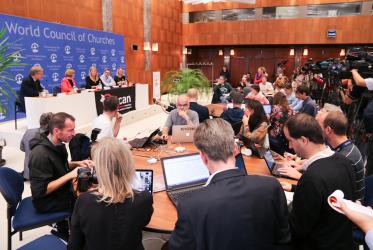Displaying 1 - 20 of 35
Churches should use their voice on climate change
26 February 2020
WCC pressing ahead with disarmament work
28 August 2019
Trying to do good for the world
18 December 2017
Dozens of countries sign nuclear weapons ban treaty
20 September 2017
Emily Welty: tide of hope for a world free from nuclear weapons
19 September 2017
At UN, anti-nuclear majorities challenge nuclear-dependent minority
05 November 2015





